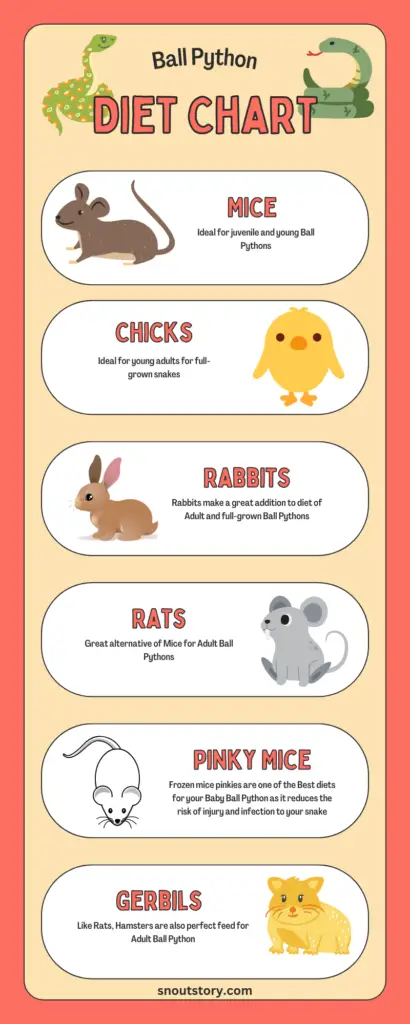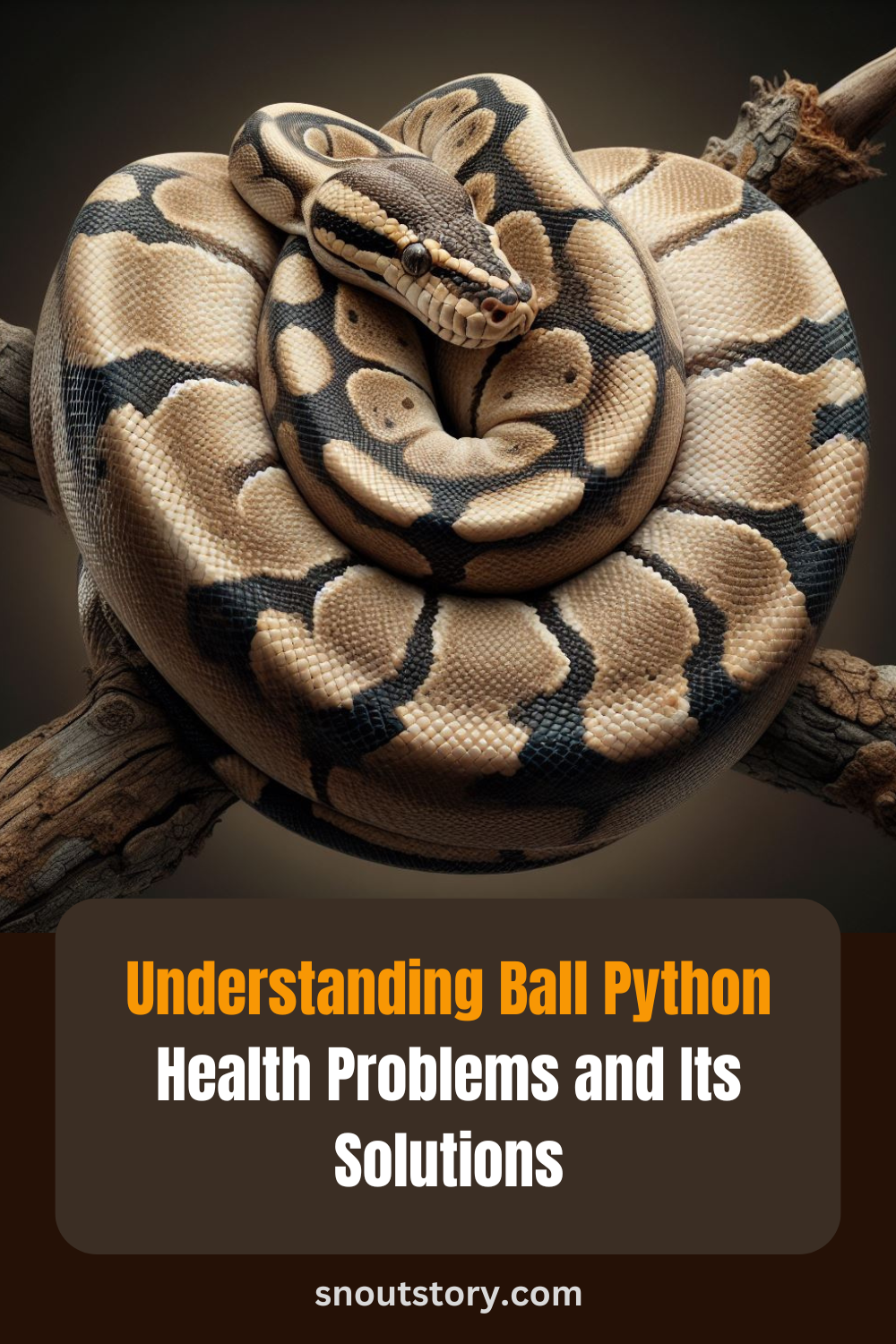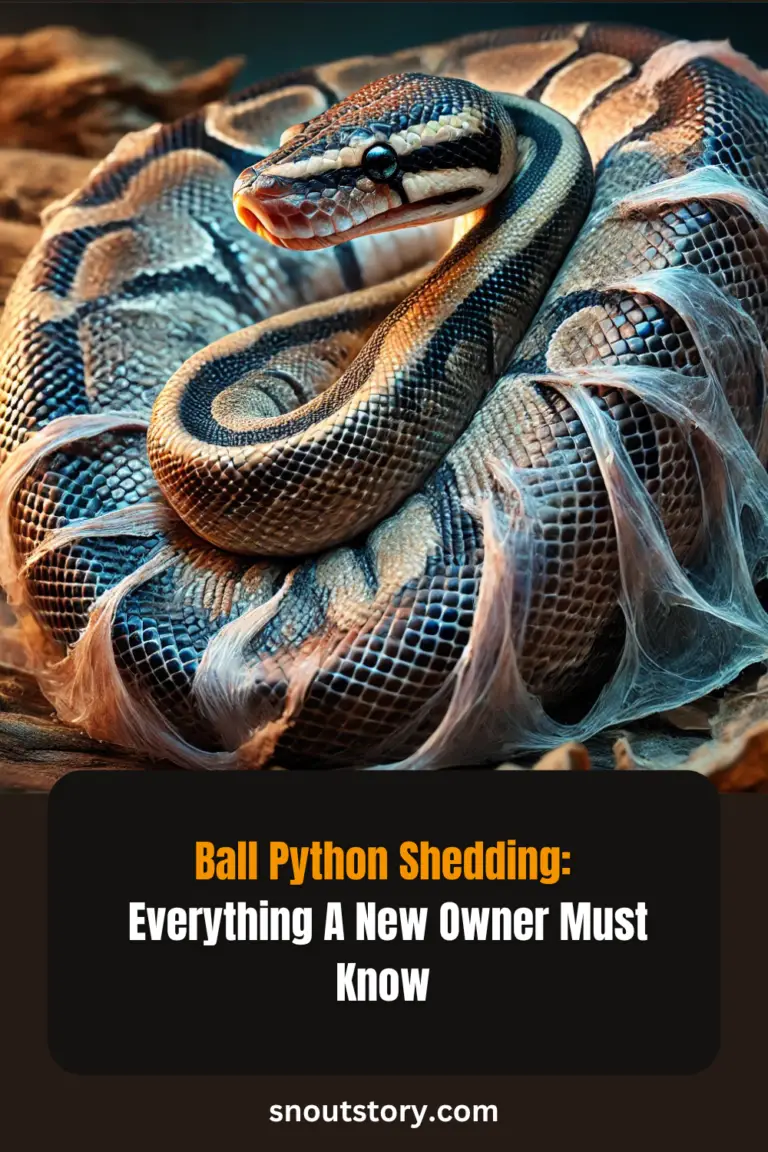Ball pythons are one of the most popular types of pet snakes and for a good reason. These snakes are generally docile, easy to care for, and can live for up to 30 years in captivity.
However, like all living creatures, ball pythons can develop health problems if they are not properly cared for. Understanding these health problems and how to prevent them is key to keeping your pet snake healthy and happy.
In this article, we will take a closer look at some of the most common health problems faced by ball pythons, as well as what you can do to prevent them.
Common Health Problems in Ball Pythons
Respiratory Infections
Respiratory infections are one of the most common health problems faced by ball pythons. These infections are caused by bacteria or viruses that invade the snake’s respiratory system, causing symptoms like wheezing, sneezing, and increased mucus production. If left untreated, respiratory infections can quickly become severe and even life-threatening.
Poor cage hygiene is the most common cause of respiratory infections in ball pythons. Snakes are highly sensitive to the environment they live in, and if the cage is too damp, dirty, or overcrowded, this can create the perfect conditions for bacterial or viral infections to take hold. To prevent respiratory infections, it’s important to maintain a clean and well-ventilated cage and to avoid overcrowding your pet snake.
Parasites
Another common health problem faced by ball pythons is parasites. Parasites like mites, ticks, and lice can cause a range of symptoms, including skin irritation, anemia, and decreased appetite. In severe cases, parasites can even be fatal if left untreated.
To prevent parasites, it’s important to maintain good cage hygiene and to keep your snake’s environment free from other pests like mice and insects that may carry parasites. Regular check-ups with a veterinarian and stool tests can also help detect and prevent parasites before they cause serious health problems.
Vitamin and Mineral Deficiencies
Vitamin and mineral deficiencies can also be a problem for ball pythons, especially if they are not fed a balanced and nutritious diet. Symptoms of vitamin and mineral deficiencies can include lethargy, a weak immune system, and poor growth.
To prevent vitamin and mineral deficiencies, it’s important to feed your snake a balanced diet that includes a variety of prey items, like mice, rats, and rabbits. You should also provide your snake with fresh water and a source of calcium, such as a cuttlebone or calcium powder, to help ensure that it is getting the vitamins and minerals it needs to stay healthy.
Mouth Rot
Mouth rot, also known as stomatitis, is a bacterial infection that can affect the mouth and gums of ball pythons. Symptoms of mouth rot include swelling, redness, and discharge from the mouth. If left untreated, mouth rot can quickly spread to other parts of the snake’s body and become life-threatening.
To prevent mouth rot, it’s important to maintain good cage hygiene and avoid overcrowding your pet snake. If you suspect that your snake may have mouth rot, seek veterinary care as soon as possible.
Thermal Burns
If you have a ball python as a pet, it’s important to be aware of the risk of thermal burns. These burns can occur if your snake comes into contacts with a hot surface, such as a heat lamp or heating pad, that is too hot.
Signs of a thermal burn can include blisters, darkened or discolored scales, and a loss of appetite. If you suspect that your snake has suffered a thermal burn, it’s important to seek veterinary care as soon as possible. In the future, make sure to monitor the temperature of your snake’s cage regularly and ensure that any heat sources are properly regulated to prevent burns.
When to See a Veterinarian
If you suspect that your ball python is experiencing any health problems, it is important to seek veterinary care as soon as possible. Some signs that your ball python may need veterinary care include:
- Changes in appetite
- Changes in behavior
- Changes in appearance, such as swelling or redness
- Discharge from the mouth or nostrils
- Breathing difficulties
By understanding and addressing ball python health problems, you can help keep your pet snake healthy and happy for many years to come.
How to Prevent Health Problems in Ball Pythons
Proper Cage Environment
The first step in preventing health problems in ball pythons is to provide them with a proper cage environment. This means maintaining a clean and well-ventilated cage, avoiding overcrowding, and ensuring that your pet snake’s temperature and humidity levels are within a suitable range.
A good rule of thumb is to provide your snake with a cage that is at least 3 times its total length and 2 times its width. The cage should also be equipped with a heat source, like a heat lamp or heating pad, to maintain a temperature gradient within the cage, with a warm side and a cooler side. The temperature should be kept between 78-82°F (25-28°C) on the warm side and 70-75°F (21-24°C) on the cool side.
Additionally, it’s important to maintain the proper humidity levels within the cage. Ball pythons come from a tropical environment, so they require a relative humidity of 50-60%. To achieve this, you can mist the cage regularly or provide a water dish for your snake to soak in.
Balanced Diet

Providing your ball python with a balanced and nutritious diet is also essential for preventing health problems. Ball pythons are carnivores, so their diet should consist primarily of live or frozen prey, like mice, rats, or rabbits. It’s important to offer your snake a variety of prey items to ensure that it is getting all the vitamins and minerals it needs.
It’s also important to avoid feeding your snake dead prey, as this can increase the risk of bacterial or parasitic infections. If feeding lives prey, it’s important to supervise your snake during feeding to make sure it is not being bitten or otherwise injured by its prey.
Regular Vet Check-ups
Finally, taking your ball python for regular check-ups with a veterinarian specializing in reptiles is important. These check-ups can help detect health problems early on and prevent them from becoming more serious. A veterinarian can also provide you with guidance on proper care and nutrition for your pet snake.
Conclusion
Ball pythons are wonderful pets, but like all living creatures, they can develop health problems if they are not properly cared for. By understanding the most common health problems faced by ball pythons and taking the necessary steps to prevent them, you can ensure that your pet snake stays happy and healthy for many years to come.
If you suspect that your ball python is experiencing any health problems, it’s important to seek veterinary care as soon as possible. With proper care and attention, your ball python will be a loyal and beloved companion for many years to come.
Recommended
How to Create a Bioactive Ball Python Enclosure: Detailed Guide
12 Ball Python Enclosure Setup Ideas For Realistic Habitat
How To Choose the Right Substrate for Ball Python? Complete Guide
Ball Python Shedding: Everything A New Owner Must Know
Why Is My Ball Python Not Eating? And How To Fix It!
How To Breed Ball Python – A Comprehensive Guide

Vedant Narvekar is an experienced digital marketing expert with a profound love for nature and animals. With a career rooted in leveraging online platforms to drive engagement and promote meaningful causes, Vedant’s passion for animals inspired him to start Snout Story—a blog dedicated to educating people about pet keeping and sharing proper knowledge about caring for animals. Drawing on his expertise in digital marketing, Vedant utilizes his platform to advocate for responsible pet ownership, providing valuable insights on pet care, training, nutrition, and more. Through Snout Story, Vedant aims to empower pet lovers with the information they need to provide the best possible care for their furry companions, while also fostering a deeper appreciation for the natural world and the creatures that inhabit it.







